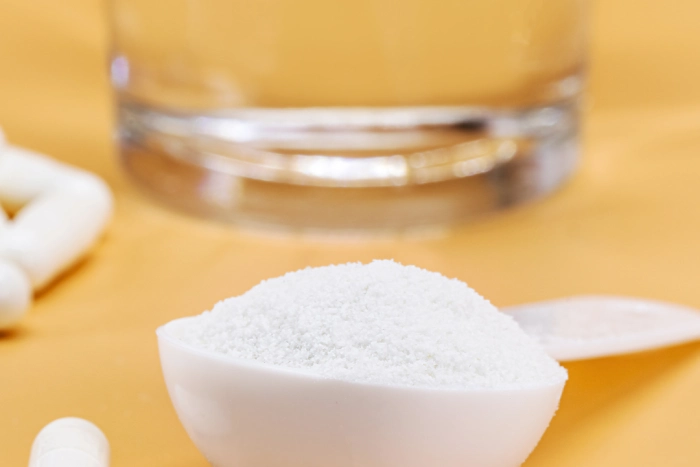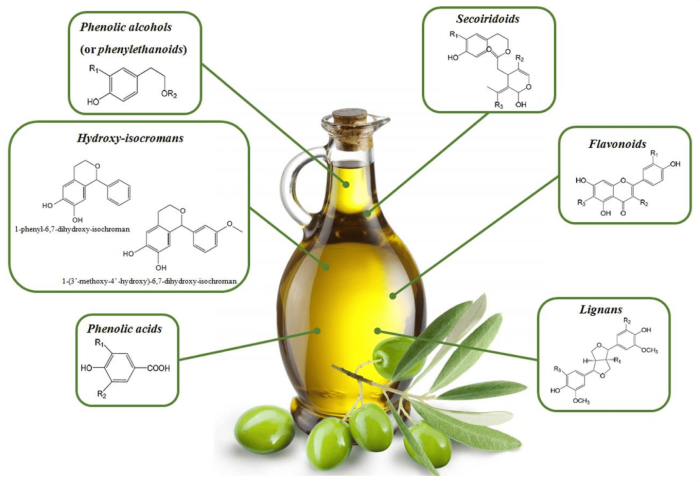Hey there, wellness warriors! 👋 Today, we’re diving deep into the world of l-carnitine tartrate, and trust me, this isn’t just another boring supplement guide. Whether you’re a gym enthusiast, someone looking to boost their energy levels, or just curious about the latest in nutrition science, you’re in for a treat!
What Exactly is L-Carnitine Tartrate?
Let’s start with the basics, fam! L-carnitine tartrate (sometimes written as l-carnitine l-tartrate) is basically the cool cousin in the l-carnitine family. Think of it as the Tesla of supplements – sleek, efficient, and scientifically advanced. It’s a compound that combines l-carnitine with tartaric acid, creating a more stable and bioavailable form of l-carnitine.
The journey of l-carnitine tartrate from laboratory discovery to supplement superstar is fascinating. Scientists first identified l-carnitine in muscle tissue back in 1905, but it wasn’t until decades later that researchers began to understand its full potential. The tartrate form emerged as a game-changer when researchers discovered that combining l-carnitine with tartaric acid significantly improved its stability and absorption.
When we compare l-carnitine tartrate vs l-carnitine, the differences become clear. The tartrate form shows superior absorption rates and maintains its stability better during storage. This means you’re getting more bang for your buck and better results from your supplementation.
The Science of Absorption and Bioavailability
Understanding how l-carnitine tartrate works in your body is crucial for maximizing its benefits. Unlike basic l-carnitine, the tartrate form has a unique molecular structure that helps it navigate through your digestive system more effectively. Think of it as having a VIP pass through your body’s security checkpoints.
The difference between acetyl l-carnitine and l-carnitine tartrate becomes particularly interesting when we look at absorption patterns. While acetyl l-carnitine excels at crossing the blood-brain barrier, l-carnitine tartrate shows remarkable efficiency in muscle tissue uptake. This makes l-carnitine tartrate particularly valuable for athletes and fitness enthusiasts.
Deep Dive into Muscle Recovery and Performance
When we shift our focus to exercise performance, it becomes abundantly clear that l-carnitine tartrate stands out as a remarkable supplement. Its prowess in enhancing muscle recovery is far from being just a baseless claim made by gym enthusiasts; rather, it is firmly rooted in substantial scientific research.
Numerous well-conducted studies have been carried out to explore the impact of l-carnitine tartrate on muscle recovery. These studies have consistently demonstrated that when individuals incorporate l-carnitine tartrate into their supplement regimens, there is a significant reduction in the amount of exercise-induced muscle damage and soreness. For instance, in a series of experiments involving athletes who engaged in intense resistance training, those who took l-carnitine tartrate experienced much milder muscle aches and had quicker recovery times compared to the control group that didn’t use the supplement.
The truly remarkable aspect, however, lies at the cellular level. Here, l-carnitine tartrate plays a pivotal role in optimizing the energy production process within your muscle cells. Picture your muscle cells as tiny power plants, and the mitochondria within them as the generators that convert fuel into usable energy. L-carnitine tartrate acts as an efficient shuttle, transporting fatty acids into the mitochondria with enhanced efficiency. During workouts, especially during those grueling and intense training sessions where your body is constantly pushing its limits and demanding a continuous supply of energy, this process becomes absolutely crucial.
When you’re engaged in activities like high-intensity interval training, weightlifting with heavy loads, or endurance running, your muscles require a substantial amount of energy to contract and perform optimally. Without an effective means of getting the necessary fuel to the mitochondria, your performance could quickly decline, and fatigue would set in earlier. But with l-carnitine tartrate on the job, it ensures that the fatty acids, which are a rich source of energy, can reach the mitochondria smoothly and be converted into the energy that your muscles desperately need. This way, your body is able to maintain a higher level of performance for a longer period, allowing you to push through those tough workouts and potentially achieve better results in terms of strength gains, endurance improvement, and overall athletic performance.

Metabolic Enhancement and Fat Loss
Let’s now turn our attention to one of the most talked-about and sought-after topics in the fitness realm – fat loss. The connection between l-carnitine tartrate and fat metabolism is truly captivating and worthy of a detailed exploration.
It’s important to set the record straight from the get-go: l-carnitine tartrate is not some kind of miraculous fat-burning pill that will magically melt away pounds overnight, as much as we might wish for such a thing. However, its role in facilitating the transportation of fatty acids within the body makes it an incredibly valuable asset in your journey towards achieving and maintaining a healthy weight.
When we compare l-carnitine fumarate and l-carnitine tartrate in the context of fat loss, it’s fascinating to see how the tartrate form often emerges as the preferred option. This is primarily due to its superior absorption profile. The body has an intricate system for taking in and utilizing nutrients, and l-carnitine tartrate has the advantage of being absorbed more effectively by our digestive system. This enhanced absorption means that a greater amount of the supplement can actually enter the bloodstream and reach the cells where it can exert its beneficial effects.
During exercise, when our bodies are in a state of increased energy demand, l-carnitine tartrate really shines. It helps your body become more proficient at using fat as a fuel source. For example, when you’re out for a jog or cycling, instead of relying solely on carbohydrates for energy, your body can now tap into its fat stores more readily, thanks to the action of l-carnitine tartrate. This doesn’t guarantee that you’ll automatically shed pounds without any other lifestyle changes, as weight management is a complex interplay of multiple factors including diet, overall physical activity levels, and even hormonal balance. But what it does mean is that your body becomes better equipped to utilize fat as an energy source, which can contribute to a more efficient metabolism over time.
In the long run, as your body gets better at using fat for fuel, it can potentially lead to a reduction in overall body fat percentage. This is especially relevant for those who are looking to break through a weight loss plateau or enhance their body composition by reducing fat while maintaining or even increasing muscle mass. Whether you’re aiming to fit into those old jeans again or striving for a more toned and athletic physique, l-carnitine tartrate can play a supportive role in your efforts by optimizing how your body handles and burns fat.
The Hormone Connection
One lesser-known aspect of l-carnitine tartrate is its potential impact on hormone function. Research suggests that it might help optimize androgen receptor sensitivity, which could lead to improved hormone signaling in your body. This is particularly relevant for athletes and anyone looking to maximize their training results.
When we look at l carnitine tartrate pcos research, the findings are particularly intriguing. Women with PCOS have reported improvements in insulin sensitivity and metabolic health when supplementing with l-carnitine tartrate. This hormonal connection opens up exciting possibilities for various health applications beyond just exercise performance.

Cognitive Benefits and Brain Health
While acetyl l-carnitine vs l carnitine tartrate comparisons often focus on physical performance, let’s not overlook the cognitive benefits. Although l-carnitine tartrate isn’t primarily known for its brain-boosting properties, recent research suggests it might have more to offer in this department than previously thought.
The key lies in its ability to support energy metabolism in brain cells. While it may not cross the blood-brain barrier as readily as acetyl l-carnitine, l-carnitine tartrate still contributes to overall brain health by supporting efficient energy production and reducing oxidative stress.
Dosing Strategies for Maximum Benefits
The best time to take l carnitine tartrate depends largely on your specific goals and daily routine. While the standard recommendation of 1000-2000mg per day is a good starting point, let’s dive deeper into how you can optimize your dosing strategy.
Morning supplementation can help kickstart your metabolism and provide sustained energy throughout the day. However, if your primary goal is exercise performance, timing your dose about 60-90 minutes before your workout can help maximize its benefits. Some athletes even experiment with split dosing, taking l carnitine tartrate 1000mg in the morning and another dose pre-workout.
Advanced Applications and Stacking Strategies
For those looking to take their supplementation game to the next level, understanding how l-carnitine tartrate interacts with other supplements is crucial. The synergy between l-carnitine tartrate and certain compounds can enhance its effectiveness.
When combined with compounds that improve insulin sensitivity, l-carnitine tartrate’s absorption can be significantly enhanced. This is why many experienced users time their doses with carbohydrate-containing meals or supplements. The insulin response helps drive more l-carnitine into your muscles, where it can work its magic.
Understanding Different Forms and Applications
The market offers various forms of l-carnitine, and understanding the difference between l-carnitine tartrate and acetyl l-carnitine is just the beginning. L carnitine l tartrate powder has become increasingly popular among athletes who prefer the flexibility of powder supplementation. This form allows for precise dosing and easy mixing with other supplements.
When comparing l-carnitine tartrate vs l-carnitine fumarate, we need to consider both absorption rates and specific applications. While both forms are effective, l-carnitine tartrate often edges out the competition in terms of exercise performance and recovery benefits.
Safety and Long-term Considerations
While l-carnitine tartrate is generally safe, it’s important to discuss potential concerns and long-term usage considerations. Some users report mild side effects when first starting supplementation, but these typically resolve as your body adjusts.
One interesting aspect of long-term l-carnitine tartrate use is its potential impact on mitochondrial health. By supporting healthy mitochondrial function over time, regular supplementation might contribute to better cellular energy production and overall metabolic health.
Future Research and Emerging Applications
The field of l-carnitine tartrate research continues to evolve, with new applications being discovered regularly. Recent studies are exploring its potential benefits for conditions ranging from cardiovascular health to cognitive function.
Emerging research on the difference between l carnitine tartrate and acetyl l carnitine in various health applications is particularly exciting. Scientists are investigating how different forms of carnitine might be used therapeutically for specific health conditions.
Practical Tips for Supplementation Success
Success with l-carnitine tartrate supplementation isn’t just about choosing between l-carnitine tartrate vs acetyl l-carnitine or finding the perfect dose. It’s about creating a comprehensive approach that includes proper nutrition, timing, and consistency.
Consider keeping a supplement journal to track your progress and any effects you notice. This can help you optimize your dosing strategy and identify what works best for your body. Remember, individual response can vary, and what works perfectly for one person might need adjustment for another.

Real-World Applications and User Experiences
The real-world evidence for l-carnitine tartrate’s effectiveness is compelling. Athletes report improved recovery times and better performance during high-intensity training. Fitness enthusiasts praise its energy-boosting properties, while those focused on body composition note its supporting role in their fat loss efforts.
When we look at the difference between acetyl l-carnitine and l-carnitine tartrate in real-world applications, user experiences often align with research findings. Athletes typically prefer the tartrate form for its performance benefits, while those seeking cognitive enhancement might lean toward acetyl l-carnitine.
Frequently Asked Questions
Let’s address some common questions about l-carnitine tartrate:
Is l carnitine tartrate the same as l carnitine? While they share the same base compound, l-carnitine tartrate offers enhanced stability and absorption compared to basic l-carnitine. The tartrate form is specifically designed for better bioavailability and effectiveness.
What’s the difference between acetyl l-carnitine and l-carnitine tartrate? The main difference lies in their primary benefits and how they’re processed by your body. L-carnitine tartrate excels in exercise performance and recovery, while acetyl l-carnitine is often preferred for cognitive enhancement.
How does l carnitine tartrate vs l carnitine fumarate compare? Both forms are effective, but l-carnitine tartrate typically shows superior absorption and exercise-related benefits. The choice between them often comes down to individual response and specific goals.
Feel free to drop questions in the comments below! And don’t forget to share this guide with your fitness-obsessed friends who are still trying to figure out the difference between all these carnitine forms. We’re all in this together! 💪
The Bottom Line
L-carnitine tartrate represents a significant advancement in supplement science. Whether you’re comparing l-carnitine tartrate vs l-carnitine or exploring the difference between l-carnitine tartrate and acetyl l-carnitine, understanding your specific needs is key to making the right choice.
Remember that supplementation is just one piece of the puzzle. While l-carnitine tartrate can support your health and fitness goals, it works best as part of a comprehensive approach that includes proper nutrition, regular exercise, and adequate rest.
Ready to level up your supplement game? L-carnitine tartrate might just be the missing piece in your wellness puzzle. Just remember to start slow, stay consistent, and listen to your body. The journey to optimal health is a marathon, not a sprint, and l-carnitine tartrate can be a valuable companion along the way.
Disclaimer: Always consult with a healthcare professional before starting any new supplement regimen. This article is for informational purposes only and should not be taken as medical advice.



